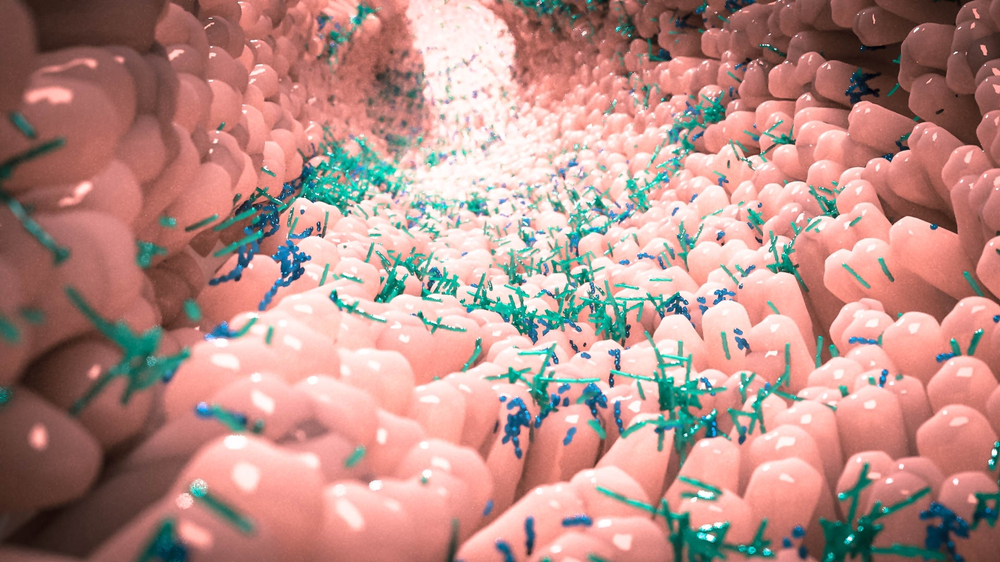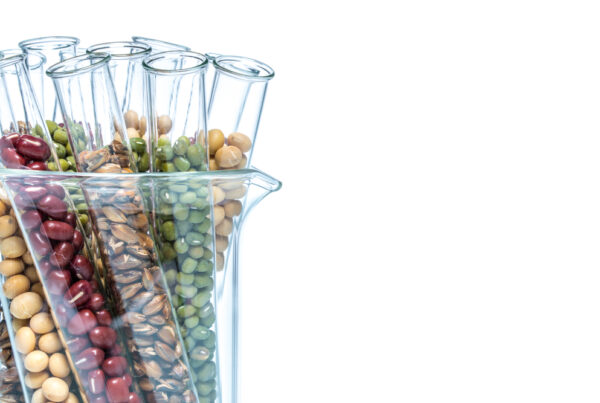What Is The Microbiome?
It’s the collection of communities of micro-organisms that live inside our bodies, mostly in the gut, but also other areas such as the lungs, nose, sinuses, mouth, throat, bladder, skin and eyes, and includes bacteria, viruses, yeasts and others. And they all talk to each other via DNA so the microbes in the sinuses know what the microbes in the gut are doing.
You’ll be hearing more and more about the microbiome as the medical community jumps on board a subject they can no longer ignore due to the vast amount of research that’s being done around this.
Digestion and gut health, and its role in our well-being has been the cornerstone of treatment in the practices of integrative practitioners and naturopaths since…forever, and it’s great to finally see it gaining mainstream recognition as a major factor in chronic illness, as well as longevity.
Our bodies are made up of more microbes than our own cells (10:1 ratio), and we have lived in harmony with these microscopic creatures for as long as human existence. We give them a place to stay, feed them, make them comfortable…and they in turn digest our food, give us nutrients, protect us from other not-so-friendly microbes, regulate our gene expression, and improve communication between our cells and neurons (nerve cells).
According to uBiome a single cell E. coli bacterium can multiply every 30 minutes and if their natural cell cycle allowed them to live beyond 36 hours you will have the weight of around 600 male African elephants produced from one single bacterial cell.
Pretty amazing!
The microbial DNA we absorb into our cells after they die, the metabolic products they secrete, and also the toxins they produce all play an epigenetic role and changes the way our own DNA is expressed and the messages our cells send to each other.
It is estimated that we once played host to around 4000 or so species of bacteria (numbers close to this can still be found in some isolated communities protected from modern existence), but today the ‘average healthy’ westerner only has 1000 or so different species residing within them when we measure from mouth to rectum.
That’s pretty sad.
So what went wrong? What soured this once mutually beneficial relationship?
Antibiotics: We told them they were the bad guys and we didn’t like them anymore. It’s everywhere – in our medicine, food, water and soil. Every time you take antibiotics you are permanently eliminating species of organisms in your body and it becomes increasingly harder and harder to get them back.
Oxalobacter formigenes is a case in point and one reason why we are seeing so many oxalate issues these days in our chronically ill clients.
Preservatives: When you preserve your food, by definition you suppress the growth of bacteria. What do you think is happening in your gut when you eat ‘food’ containing preservatives?
Glyphosate: The chemical herbacide better known as ’round-up’ commonly used in our gardens and in farming practices interfere with the shikimate pathway in the growth cycle of plants and bacteria. So not only does it kill plants by blocking their growth, it also destroys soil microbes which leads to less exposure for ourselves, a loss in biodiversity, and less bacteria to digest the GMO food that survived glyphosate.
All the other chemicals and drugs not mentioned here for similar reasons.
Stress: Whether we’re talking about physical, emotional or toxic stress, anything that locks the autonomic nervous system in that fight-of-flight sympathetic dominant state can change the composition of the microbiome (or the microbiota) to become more vulnerable to inflammatory stimulation.
Stress can also inhibit gut contractions (peristalsis) which is how the digestive system keeps bacteria from colonising and keeps the bowels moving.
How do we invite them back?
GET DIRTY
Let your kids play in the garden and don’t freak out when their little mud smeared faces stare back at you. Don’t you remember doing this as a child? Or am I just old?
Lie on the lawn. Work in the garden. Walk barefoot. Earth. You’ll pick up organisms from nature just by connecting with it.
Obviously we are not suggesting inhaling soil/compost/manure as these can expose you to dangerous infections, but get close to nature again.
HEALTHY SOIL
Using biodynamic farming practices where we feed the soil organic compost matter instead of synthetic fertilizers is the only way to ensure a healthy soil rich in micro-organisms. The soil microbiome is responsible for breaking down plant and organic matter, and releasing nutrients to the roots of the plants. This is how how minerals are absorbed and accumulate in our vegetables. When vegetables are grown on synthetic soils with phosphate and nitrogen fertilizers, what nutrients are they going to contain? Phosphate and nitrogen…and not much else.
When gardens are sprayed with round-up and other herbacides, soil organisms die, leaving it barren and unable to provide nourishment for plants. What are you eating?
Vegetables are supposed to be grown in rich organic soil full of organisms, and only rinsed under pure water (chlorine free) to wash off the dirt. This still keeps soil organisms on the vegetables which becomes part of our microbiome.
FORGET ABOUT SANITIZING
No more antimicrobial handwashes, antimicrobial soaps, antimicrobial anything.
There may be some exceptional circumstances where this may still apply (such as around severely immuno-compromised individuals), but in general, advertisements with happy families ‘protecting’ themselves against nasty bacteria by spraying and sanitizing the house left, right and centre, should be banned for all the outdated misinformation it is spreading.
MANAGE YOUR STRESS BETTER
You are not the only one affected by lack of sleep, working too hard, partying too hard, and worrying about everything. As part of your ‘family’ your microbiome is affected by stress just as much as you are. Avoid over-exercising, not sleeping enough, overcommitting to things you don’t really have time for.
Learn to say ‘NO’.
EAT LESS FOOD…
Studies have shown that reducing calorie intake by 25% can significantly increase the health of the microbiome as well as reduce the inflammatory response.
…AND EAT REAL FOOD
They eat what you eat.
Don’t feed them food grown using pesticides/herbacides/glyphosate, genetically modified food containing glyphosate residues, processed foods containing preservatives and other chemicals. The best thing you can do is just eliminate these very things that will kill them off by eating non-GMO, organically grown whole foods without chemicals, preservatives and numbers.
And don’t eat sugar!
The focus should then be on eating prebiotic foods that will actually feed them and allow them to multiply, such as vegetables, fruit, herbs (plant matter), animal proteins (beef, lamb, eggs), lentils, beans, pulses, nuts, seeds, starches (potatoes, rice, grains).
Notice no special diets. Just common-sense eating. This may unfortunately be a new concept for some generations who grew up on fast-food diets and have never seen food grown in a garden or farm, but only magically appear in boxes on supermarket shelves. The poor state of our education system, corporate greed and political corruption have a lot to answer for.
But off my soapbox and back to the subject – feed them well and they will pay you back the favour over and over.
I’m going to contradict myself for just a moment by saying that there are some circumstances where prebiotic foods may not be advisable such as with SIBO (Small Intestinal Bacterial Overgrowth) or histamine intolerances which can be tested for.
FERMENT YOUR FOOD
When you get an organic cabbage grown in biodynamic soil for making sauerkraut, you do not need any commercial starters. There’s enough bacteria on the leaves to multiply using the cabbage as food, and provide you with trillions of probiotic bacteria by the time it is ready to eat. The same applies to any other food you want to ferment. Properly fermented foods will supply you with more mico-organisms than any commercial probiotic will ever be able to.
Go one step further and eat what your ancestors did. Every culture features some fermented foods such as sauerkraut (German), miso (Japanese), Yoghurt (Greek), Kefir (Turkish), etc., so find out what your ancestral heritage is and what they used to eat. Most of us will be mixtures of a few cultures, but you get the idea. Our microbiome have evolved over hundreds of years to suit a specific way of eating, and going back to what it knows can often make a huge difference in health.
DRINK CLEAN WATER
Tap water is treated with chlorine, fluoride and lots of other chemicals with the sole purpose of killing harmful bacteria in the water, but it will do the same inside your gut. Drinking untreated tank water could expose you to parasites or protozoal organisms that can also affect your health, so it’s important to invest in good water filtration systems that can remove chemicals, pesticide residues, fluoride, chlorine, metals and potentially harmful micro-organisms.
FIX THEIR HOME AND MAKE THEM FEEL WELCOME
Don’t be a slum-lord. Provide them with an environment where they would want to stick around.
Make sure you are eating enough fibre and drinking enough water to move your bowels, eating enough fats to stimulate bile coming from a healthy liver to neutralize stomach acid, secreting enough pancreatic enzymes from a healthy pancreas to help digest food into smaller pieces for bacteria to consume. Heal an inflamed or ulcerated gut wall to allow micro-organisms to attach and become permanent residents. Eat plenty of antioxidant-rich plant foods to reduce inflammation.
APPRECIATE THEM
Unless you stop thinking of your symbiotic guests as the enemy you are not going to create a nourishing and inviting environment for them. They have been around since the beginning of time, transferred from generation to generation, so realize that they can survive without you, but you cannot survive without them. Learn to respect them and the role they play in your health, treat them accordingly, and they will give you a whole lot of love back.
Remember that you are simply borrowing the microbiome from future generations.
As your microbiome gets healthier, expect improvements in:
- Immune function
- Hormone regulation
- Digestion
- Mood
- Energy
- Weight loss
- Nutrient absorption
- Genetic expression or epigenetics
- Stress adaptation
IMPORTANT NUTRIENTS PRODUCED BY YOUR MICROBIOME
Vitamin C: It’s still widely accepted that humans cannot synthesize vitamin C and have to obtain it from the diet due to a lack of a specific enzyme involved in this process. But more recent research suggests that there are bacteria within our bodies that can in fact make vitamin C. So even though we may lack the genetic equipment within our own cells to make this great antioxidant, our microbiome can support us in this.
Methylated folate: 5-methyl tetrahydrofolate is produced by lactobacilli bacteria in the gut through the digestion of green vegetables. So, contrary to popular belief, you do not need to take methylated folate supplements for the rest of your life when you’ve tested positive for MTHFR mutations or polymorphisms.
First and foremost you don’t ever ‘treat’ mutations, and many people without MTHFR mutations test low for methylated folate due to poor diet, gut problems or history of antibiotic use.
I suggest you read our FREE eBook:
Turns out if you eat fermented foods like sauerkraut or yoghurt that contain lactobacilli with plenty of organic green vegetables you’ll be supporting the production of methyl-folate needed for methylation.
B Vitamins: Similarly these are needed for methylation, but also energy production and a healthy nervous system.
Conjugated Linoleic Acid: CLA is a fatty acid involved in weight loss and insulin regulation.
Vitamin K: Needed for healthy bones and healthy, flexible blood vessels.
Butyrate: Through fermentation of fibers gut bacteria produce short chain fatty acids such as butyrate which is an important food source for coloncytes (the cells in the colon).
Antibiotics: Yes, bacteria produce it’s own antibiotics called bacteriocins which helps to protect the host (you!) from and kill invading organisms. Collectively this immune modulating system in the gut is part of the GALT (Gut Associated Lymphoid Tissue) organ system.
TAKE HOME MESSAGE
Our symptoms reflect more what we do to our microbiome than what we do to our own cells as they are more sensitive to stressors and we are heavily dependent on their epigenetic control within our bodies.
Understand that you are not a single being, but a hub of activity that’s ever-changing and adapting to new circumstances. You control the fuel that goes in and many other variables such as pH, temperature, toxic load and other stressors. Just like your human family depend on you for care, so does your ‘microbial family’.
Don’t neglect them.







